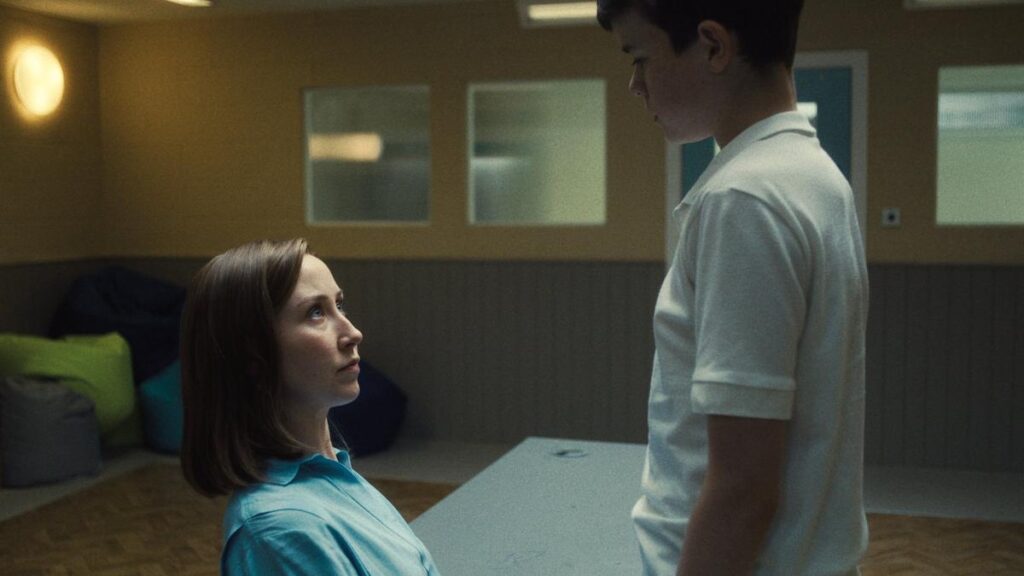Netflix’s Adolescence is not just another crime drama. The four-part miniseries, created by Jack Thorne and Stephen Graham, dissects the fragile psyche of a 13-year-old boy accused of murder while holding a mirror to a society grappling with toxic masculinity and digital radicalization. In a post-Andrew Tate world, where influencers peddle misogyny as self-help, this series is a haunting reminder of how easily vulnerable minds are corrupted.
A Masterclass in Tension and Realism
Filmed in real-time single takes, Adolescence traps viewers in the suffocating aftermath of a teen’s arrest. Each episode unfolds without cuts, amplifying the raw emotion of parents, investigators, and the accused. Director Philip Barantini’s choice to avoid traditional editing creates an unrelenting intimacy, forcing audiences to confront uncomfortable truths about modern adolescence.
Key Details at a Glance
| Title | Adolescence (English) |
|---|---|
| Creators | Jack Thorne, Stephen Graham |
| Cast | Stephen Graham, Owen Cooper, Erin Doherty |
| Episodes | 4 |
| Runtime | 55-60 minutes per episode |
| Streaming On | Netflix |
The Unseen Forces Shaping Jamie Miller
At the heart of the series is Jamie Miller (Owen Cooper), a 13-year-old charged with stabbing a classmate. Cooper’s debut performance is staggering—a blend of nervous vulnerability and performative bravado. In Episode 3, psychologist Briony (Erin Doherty) dissects Jamie’s psyche, revealing how online echo chambers transformed his loneliness into rage.
Did You Know?
Owen Cooper had never acted before Adolescence. Episode 3, his first shoot, was filmed in a single take—a testament to his natural talent.
The series avoids simplistic answers. Instead, it asks: How does a child become a killer? The answer lies in fragmented parenting, algorithmic radicalization, and a culture that glorifies male aggression. Jamie’s father, Eddie (Stephen Graham), embodies this duality—a loving parent blind to his son’s descent into the manosphere.
Toxic Masculinity in a Post-Andrew Tate Era
Adolescence doesn’t mention Andrew Tate but doesn’t need to. The show mirrors real-world trends where influencers rebrand misogyny as empowerment. Jamie parrots phrases like “alpha male” and “female manipulation,” regurgitating rhetoric from Discord servers and TikTok clips. As research shows, such content preys on boys craving validation, offering a warped sense of control.
The Radicalization Pipeline
- Isolation: Jamie’s social awkwardness makes him a target for online groomers.
- Validation: Incel forums reframe his insecurities as societal oppression.
- Radicalization: Anger morphs into entitlement, then violence.
The series parallels real cases like the 2024 UK knife crime surge, where teens cited online personalities as inspiration. For parents seeking to understand these dynamics, our guide on recognizing digital grooming signs offers practical advice.
Stephen Graham’s Career-Defining Performance
As Eddie, Graham delivers his finest work yet—a man oscillating between denial and despair. In Episode 2, he paces a police station barefoot, his every gesture screaming helplessness. It’s a role that echoes his past triumphs but pushes into uncharted emotional territory.
Why Adolescence Matters Now
The miniseries arrives amid global debates about regulating toxic content. While platforms like TikTok ban extremist accounts, new ones sprout daily. Adolescence argues that the solution isn’t just parental controls but systemic change—better mental health resources, reformed education, and holding tech giants accountable.
Societal Blind Spots
- Schools: Overlook bullying, dismissing it as “boys being boys.”
- Parents: Struggle to monitor covert online activity.
- Platforms: Prioritize engagement over safety.
For families navigating these challenges, our article on managing screen time for teens provides actionable strategies.
Final Verdict: A Must-Watch for Our Times
Adolescence is more than a TV show—it’s a cultural intervention. By refusing to villainize Jamie, it compels viewers to confront their complicity in a broken system. As Eddie asks in the finale, “When did I stop seeing him?” the question lingers, challenging us to look closer.
Stream Adolescence on Netflix today.

